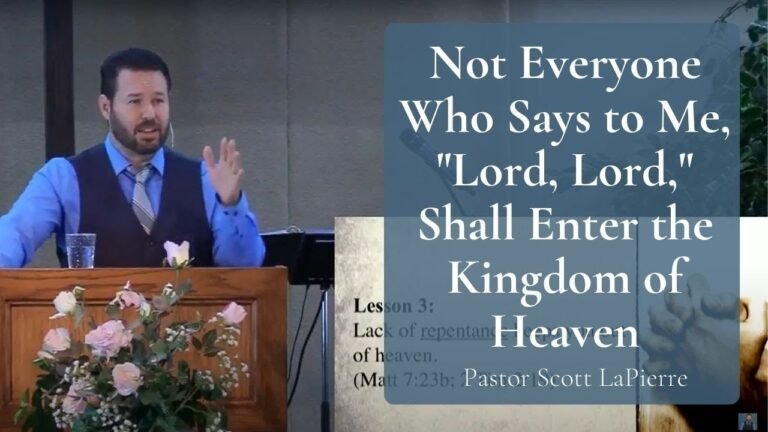Understanding Passover in the Bible
Passover, a significant event in the Bible, commemorates the Israelites’ liberation from slavery in Egypt, as narrated in the Book of Exodus. This annual celebration not only marks the beginning of spring but also serves as a powerful reminder of faith, resilience, and divine intervention. Understanding what Passover means in the biblical context sheds light on its enduring impact on Jewish heritage and its broader spiritual significance, inviting all to reflect on themes of freedom and redemption.
What is the significance of Passover in the Bible?
Passover holds profound significance in the Bible as a pivotal law given to the people of Israel. It serves as a powerful reminder of the impending arrival of Christ, who would ultimately fulfill the role of the sacrificial Lamb. This celebration not only commemorates Israel’s deliverance from slavery in Egypt but also foreshadows the redemptive sacrifice that Christ would make for humanity.
With the crucifixion of Christ, the traditional observance of Passover evolved, marking a transformative moment in spiritual history. The Savior instituted the law of the sacrament, shifting the focus from a ritual of remembrance to a new covenant that emphasizes communion and grace. This change reflects the fulfillment of the old law and highlights the profound connection between Passover and the promise of salvation through Christ.
Can you explain Passover in simple terms?
Passover, known as Pesach in Hebrew, is a significant Jewish holiday that celebrates the liberation of the Israelites from slavery in ancient Egypt. This pivotal moment in history marks the beginning of their journey to freedom, symbolizing hope and resilience. The story of Passover is not just a historical account; it embodies the enduring spirit of the Jewish people and their quest for justice.
During Passover, families gather for a special meal called the Seder, where they retell the story of the Exodus through rituals, prayers, and symbolic foods. Each element of the Seder plate serves as a reminder of the hardships faced by the Israelites and the importance of freedom. This communal celebration fosters a sense of identity and connection to the past, reinforcing the values of liberation and gratitude.
The themes of Passover extend beyond its historical context, resonating with universal ideals of freedom and justice. As Jewish communities around the world observe this holiday, they reflect on the significance of liberation in their own lives and the ongoing struggles for human rights. Passover serves as a powerful reminder of the importance of standing against oppression and cherishing the freedoms that many still fight to achieve today.
How is Passover related to Jesus?
Passover holds profound significance in the context of Jesus Christ, representing the fulfillment of ancient prophecies through His death, burial, and resurrection. This pivotal event aligns with the themes of liberation and sacrifice found in the Passover narrative, where the Jews commemorate their deliverance from slavery in Egypt. For Christians, this connection emphasizes Jesus as the ultimate Paschal Lamb, whose sacrifice brings salvation and redemption to humanity.
Furthermore, the timing of Pentecost, occurring fifty days after the resurrection, underscores the continuity between the Old and New Testaments. Just as the Israelites received the law on this day, Christians celebrate the outpouring of the Holy Spirit, marking the birth of the Church. This dual significance of Passover and Pentecost illustrates the transformative journey from the law to grace, highlighting the deep-rooted connections between Jewish traditions and the Christian faith.
Exploring the Significance of the Passover Story
The Passover story is a profound narrative that encapsulates themes of liberation, faith, and resilience. Rooted in the ancient struggle of the Israelites for freedom from Egyptian bondage, it serves as a powerful reminder of the human yearning for justice and dignity. Each element of the Passover Seder, from the bitter herbs to the matzah, symbolizes the pain of oppression and the joy of emancipation, creating a rich tapestry of tradition that has endured through generations.
Beyond its historical context, the Passover story resonates with contemporary audiences, inspiring movements for social justice around the world. It calls individuals to reflect on their own lives and the broader societal structures that impede freedom. As families gather to retell this timeless story, they not only honor their heritage but also reaffirm their commitment to standing against injustice, making the Passover a living testament to the enduring spirit of hope and renewal.
Key Themes and Teachings from Biblical Passover
Biblical Passover serves as a profound reminder of liberation and divine intervention. This pivotal event commemorates the Israelites’ exodus from Egypt, emphasizing themes of freedom from oppression and the importance of faith in God’s promises. The ritualistic elements, such as the unleavened bread and the Passover lamb, symbolize both sacrifice and the hastiness of their escape, urging believers to reflect on their own journeys toward spiritual liberation and renewal.
In addition to liberation, Passover highlights the significance of community and remembrance. The Seder meal fosters a sense of unity among families and friends, encouraging storytelling and the sharing of experiences. By recounting the narrative of their ancestors, participants are reminded of the enduring lessons of resilience, hope, and gratitude. This celebration invites individuals to embrace their heritage while reinforcing the collective responsibility to advocate for justice and compassion in the world today.
The Historical Roots of Passover Traditions
Passover, or Pesach, is a significant Jewish festival that commemorates the liberation of the Israelites from slavery in Egypt. This ancient celebration has its roots in the biblical narrative, specifically the Book of Exodus, which details the trials faced by the Israelites under Pharaoh’s rule. As they prepared for their escape, God commanded them to mark their doors with lamb’s blood, signaling the angel of death to pass over their homes during the final plague. This pivotal moment not only symbolizes freedom but also lays the foundation for the rituals observed during the holiday.
Over the centuries, Passover has evolved to include various traditions that enhance its spiritual and cultural significance. The Seder, a ceremonial dinner held on the first two nights, is central to the celebration. During this meal, families gather to read from the Haggadah, recounting the Exodus story while partaking in symbolic foods such as matzah and bitter herbs. These elements serve as poignant reminders of the hardships endured and the importance of resilience and hope in the face of adversity.
The customs associated with Passover reflect a deep sense of community and continuity among Jewish people worldwide. From the meticulous cleaning of homes to remove chametz (leavened products) to the sharing of stories and songs, each tradition reinforces a collective identity rooted in history. As families come together to celebrate their liberation, they also reaffirm their commitment to freedom and justice, making Passover not only a remembrance of the past but also a call to action for the present and future.
Passover’s Role in the Jewish Faith and Beyond
Passover, a cornerstone of Jewish tradition, commemorates the Exodus from Egypt and symbolizes freedom and redemption. This eight-day festival invites families to gather for the Seder, a ritual meal rich in symbolism and storytelling. Through the retelling of the Israelites’ liberation, participants connect with their heritage and reinforce their identity within the Jewish community. The themes of liberation and resilience resonate far beyond religious boundaries, inspiring individuals and movements advocating for justice and freedom across the globe.
The significance of Passover extends into broader cultural contexts, fostering a spirit of reflection and solidarity. Its teachings about oppression and the quest for freedom echo in various social justice movements, encouraging collective action against inequality. As people from diverse backgrounds engage with Passover’s message, they find common ground in the universal desire for liberation and dignity. This shared journey not only strengthens communal ties but also promotes a deeper understanding of the struggles faced by others, uniting diverse communities in the pursuit of a more just world.
Passover, as detailed in the Bible, serves as a profound reminder of liberation and faith, marking the Israelites’ exodus from slavery in Egypt. This sacred festival not only commemorates historical events but also invites reflection on themes of freedom and redemption that resonate through generations. Understanding Passover enriches our appreciation of its enduring significance, emphasizing the power of collective memory and spiritual resilience in the face of adversity.






